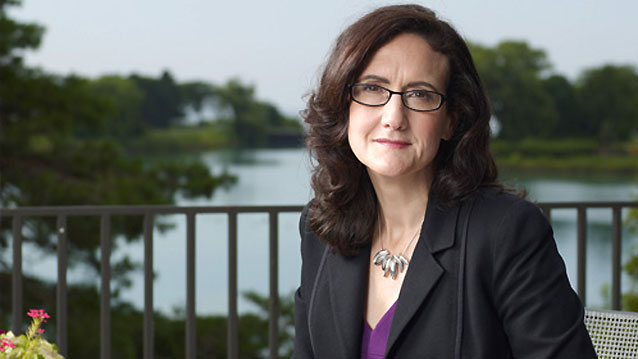This article originally appeared in Crain's Chicago Business on April 5, 2013.
By Sally Blount
I recently had the privilege to be the moderator of a very interesting panel on “higher education in the digital age” at 1871 in downtown Chicago. As you would expect, part of the discussion centered on how virtual schools, massive online open courses, or MOOCs, and online learning networks are transforming what it means to be a college and university student.
But even more important than that issue, in my opinion, is how these online education options have the potential to become one of the greatest equalizers of opportunity since the printing press.
Indeed, while some pundits call online learning a game-changer and are predicting the demise of face-to-face education, at Northwestern we welcome the opportunities that technology is bringing for thousands, and soon millions, of people around the world. Think about it. We've already begun to see this happen in very exciting ways with the lectures and videos available on open-access websites such as Khan Academy and Big Think. And just over a month ago we signed an agreement to provide select Northwestern courses globally through Coursera's MOOC platform. These opportunities for broad-access, high-level learning will only increase in the years ahead.
In addition, it's clear that the innovation and experimentation taking place online will drive greater focus and quality in face-to-face learning — making it even more valuable. So for us at Kellogg, it isn't a question of technology replacing the university and business school; it's about combining high tech with the high-touch, in-person approach. Only by leveraging technology can we most effectively develop face-to-face educational models that maximize deep learning, that is, learning that fully engages the brain both intellectually and socially.
Universities are uniquely equipped to provide learning where future leaders not only gain access to new information and different intellectual models, but also develop the critical skills of learning from others, coaching and teaching others, and working with others.
This type of deep learning is achieved most effectively when the best of technology and the best of face-to-face learning are intertwined. At a school like Kellogg, we already use technology to deliver select lecture material virtually so we can use class time to foster more discussion-based learning, to provide links to guest speakers from around the world who can uniquely comment on the concepts being discussed in class, and to facilitate group brainstorming and problem-solving with teams of students on separate continents and in different time zones.
And, in the future, new software technologies will allow us to dig more deeply into teaching students who are not in the arts how to reason visually — one of the frontiers for teaching people how to solve complex, real-world problems.
For the last 100 years, Northwestern and other elite universities have been uniquely equipped to teach deep learning. To continue to do that, we, too, must keep learning and gain inspiration from the technological and market realities of the 21st century. It's a challenging and exciting time to be in higher education.
My advice to all educators is to embrace the change and harness the power of new technologies for teaching and learning — because only then will we develop new educational models that deliver the highest quality educational outcomes for the greatest number of people possible. And that will be the real game-changer — for the world.
- Sally Blount is dean of the Kellogg School of Management.


